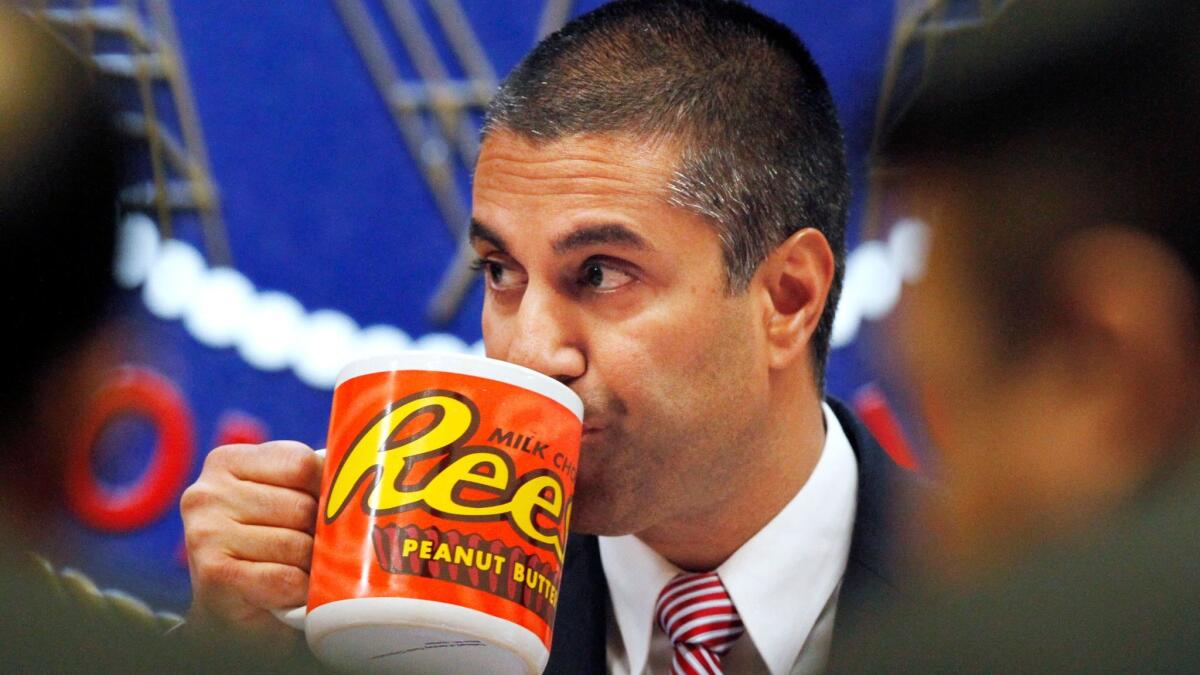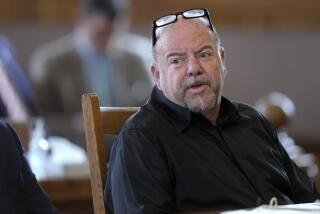FCC says fake comments won’t delay its net neutrality repeal

The Federal Communications Commission rejected calls to delay ending net neutrality rules over a flawed public comment system, saying it had not relied on thousands of identical or suspicious submissions in its decision-making.
“We reject calls to delay adoption of this Order out of concerns that certain non-substantive comments (on which the Commission did not rely) may have been submitted under multiple different names or allegedly ‘fake’ names,” the commission said in its final order released late Thursday.
A study found that more than 7.75 million comments were submitted from email domains attributed to FakeMailGenerator.com, and they had nearly identical wording. The FCC said some of the nearly 23 million comments on Chairman Ajit Pai’s proposal to gut Obama-era rules were filed under the same name more than 90 times each.
New York state Atty. Gen. Eric Schneiderman, as well as lawmakers and other state officials, had asked the commission to delay its vote and implementation of the new policy on the basis that the fake comments affected the agency’s ability to assess public reaction. The agency declined to do so.
Last month, the FCC, in a party-line 3-2 vote, swept aside rules barring broadband providers from favoring the internet traffic of websites that pay for speedier service. That move sent the future of net neutrality on to a likely court challenge.
Lawsuits challenging the order are likely to be filed as soon as Jan. 16, though earlier key court rulings could make it hard to win such suits, said Matthew Schettenhelm, a government litigation analyst with Bloomberg Intelligence.
The Republican-led commission voted to remove Obama-era prohibitions on blocking web traffic, slowing it or demanding payment for faster passage via their networks. Over objections from its Democratic members, the FCC gave up most authority over broadband providers such as AT&T Inc. and Comcast Corp., handing enforcement to other agencies.
Pai and his two fellow Republican commissioners said in comments accompanying the order that it’s a way to “restore internet freedom” and called the earlier FCC rule a “mistake” that led to less investment, particularly by smaller internet service providers.
“For one thing, there was no problem to solve,” Pai wrote. “The internet wasn’t broken in 2015. We weren’t living in a digital dystopia. To the contrary, the internet is perhaps the one thing in American society we can all agree has been a stunning success.”
Commissioner Jessica Rosenworcel, a Democrat, said the rule gives extraordinary powers to broadband providers that can’t be trusted to keep promises not to undermine certain businesses or discriminate against sites.
“They will have the power to block websites, throttle services, and censor online content,” she said in a statement. “They will have the right to discriminate and favor the internet traffic of those companies with whom they have pay-for-play arrangements and the right to consign all others to a slow and bumpy road.”
New York and California are considering their own rules, but the FCC order specifically says that it would preempt any state or local rules “that interfere with the federal deregulatory policy restored in this order.”
The FCC’s new policy takes effect upon approval of the rule by the Office of Management and Budget, the agency said.
Decker writes for Bloomberg.
More to Read
Inside the business of entertainment
The Wide Shot brings you news, analysis and insights on everything from streaming wars to production — and what it all means for the future.
You may occasionally receive promotional content from the Los Angeles Times.










